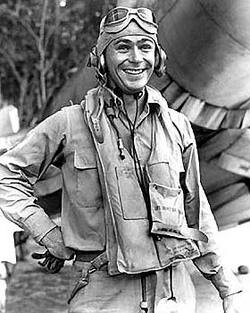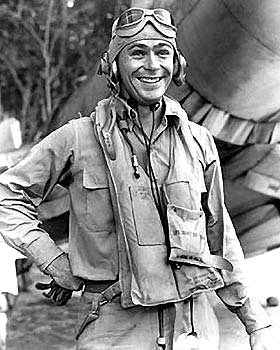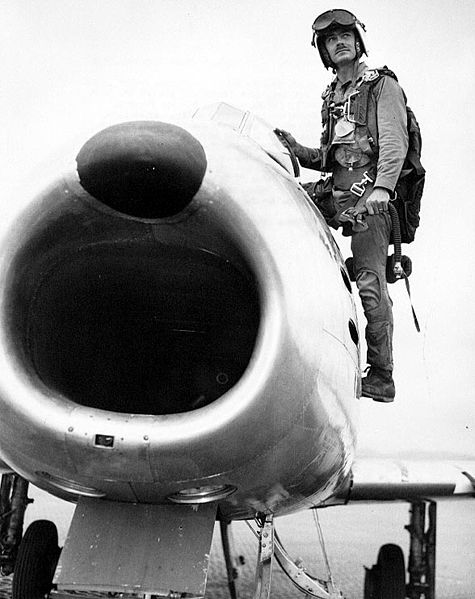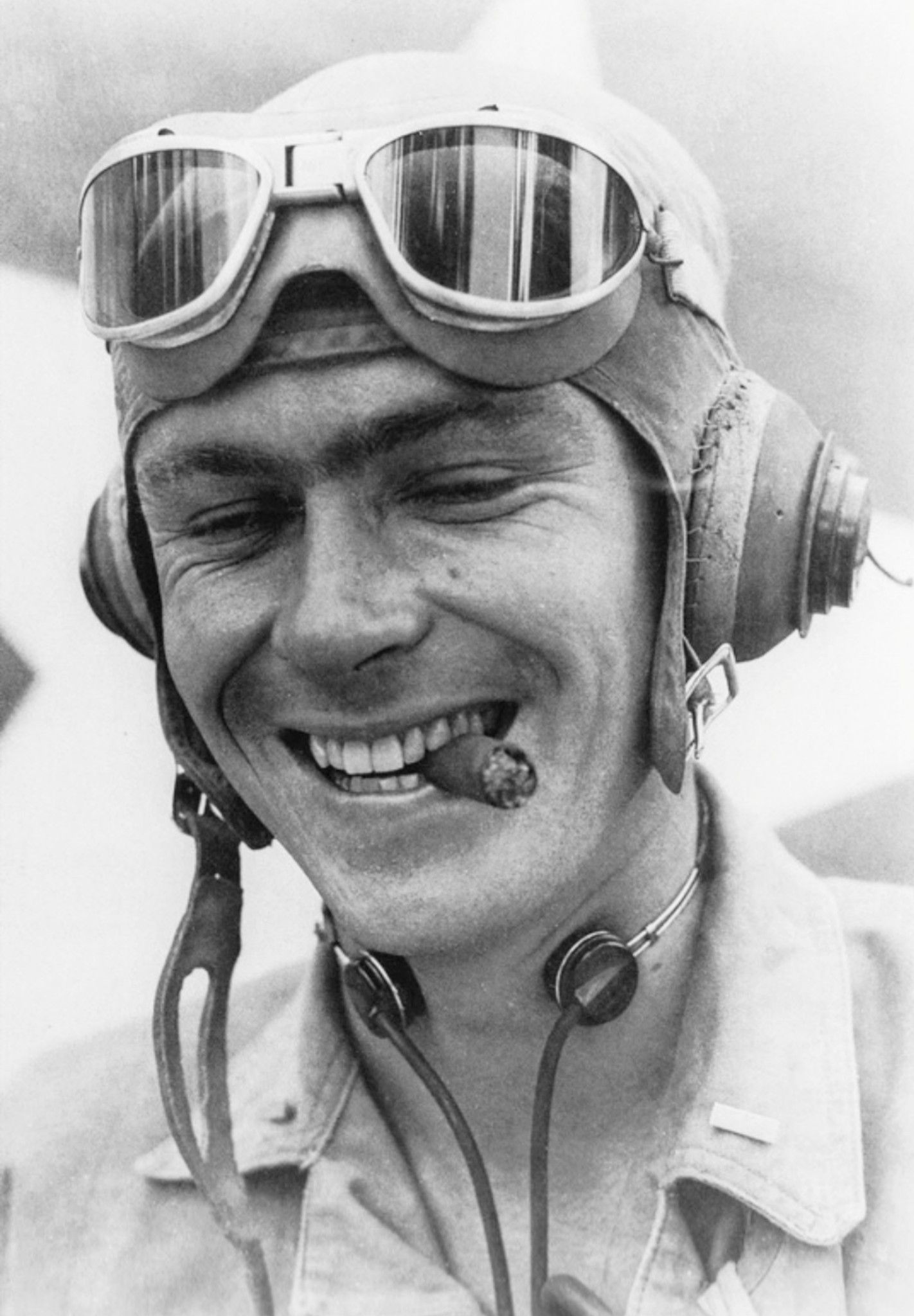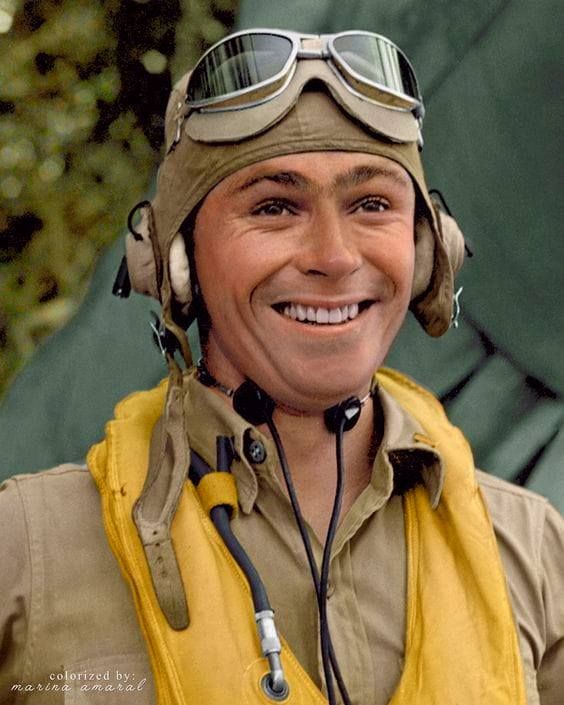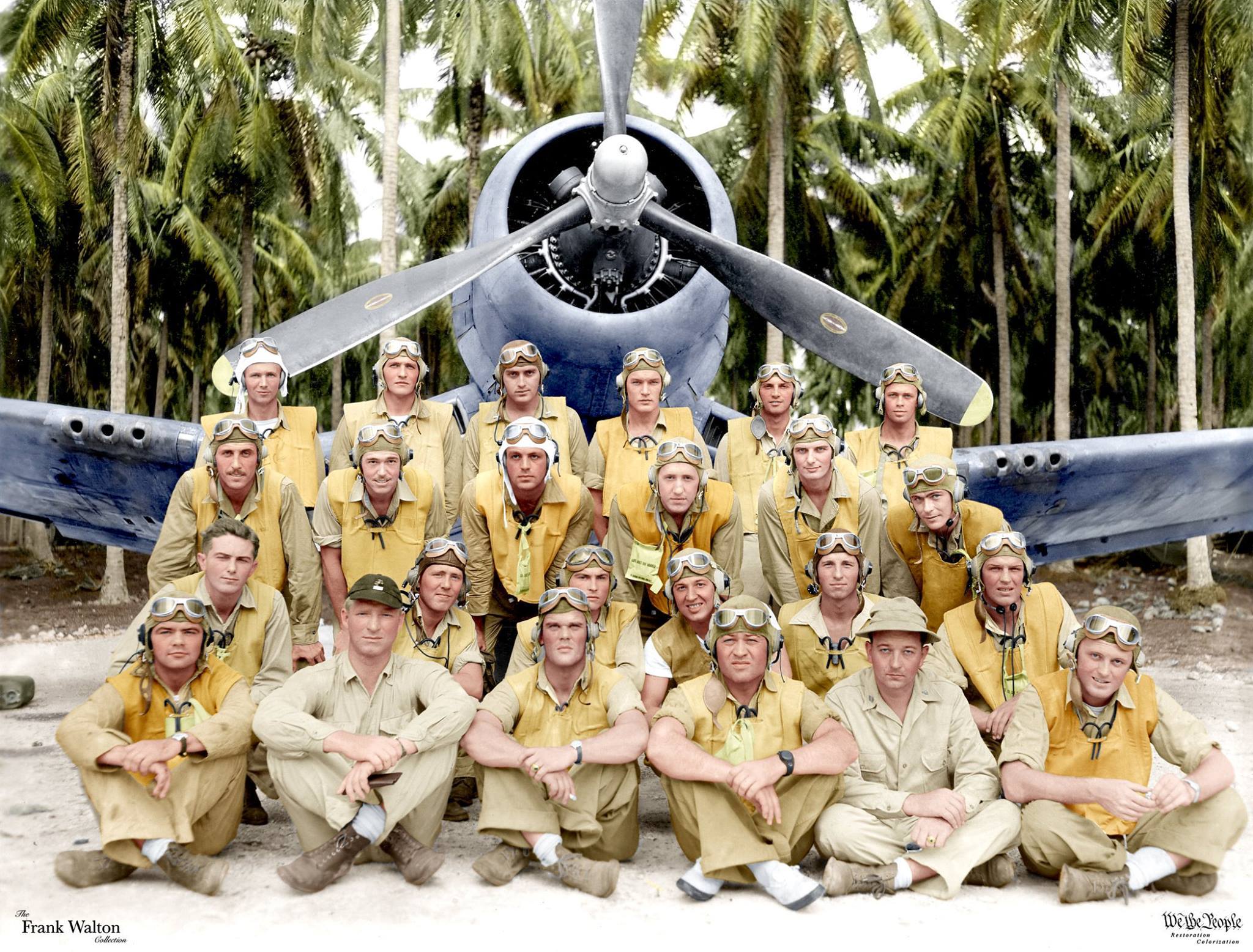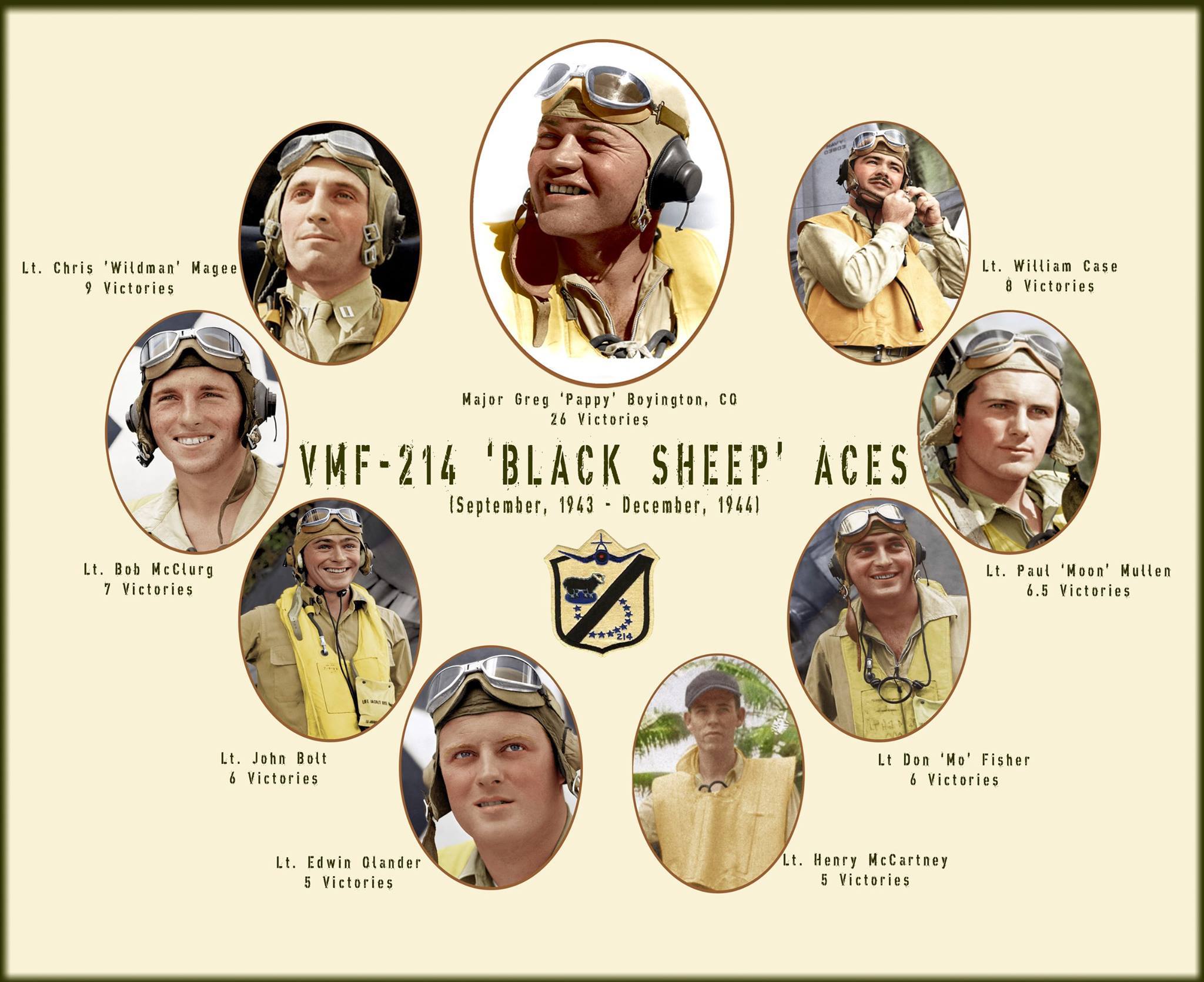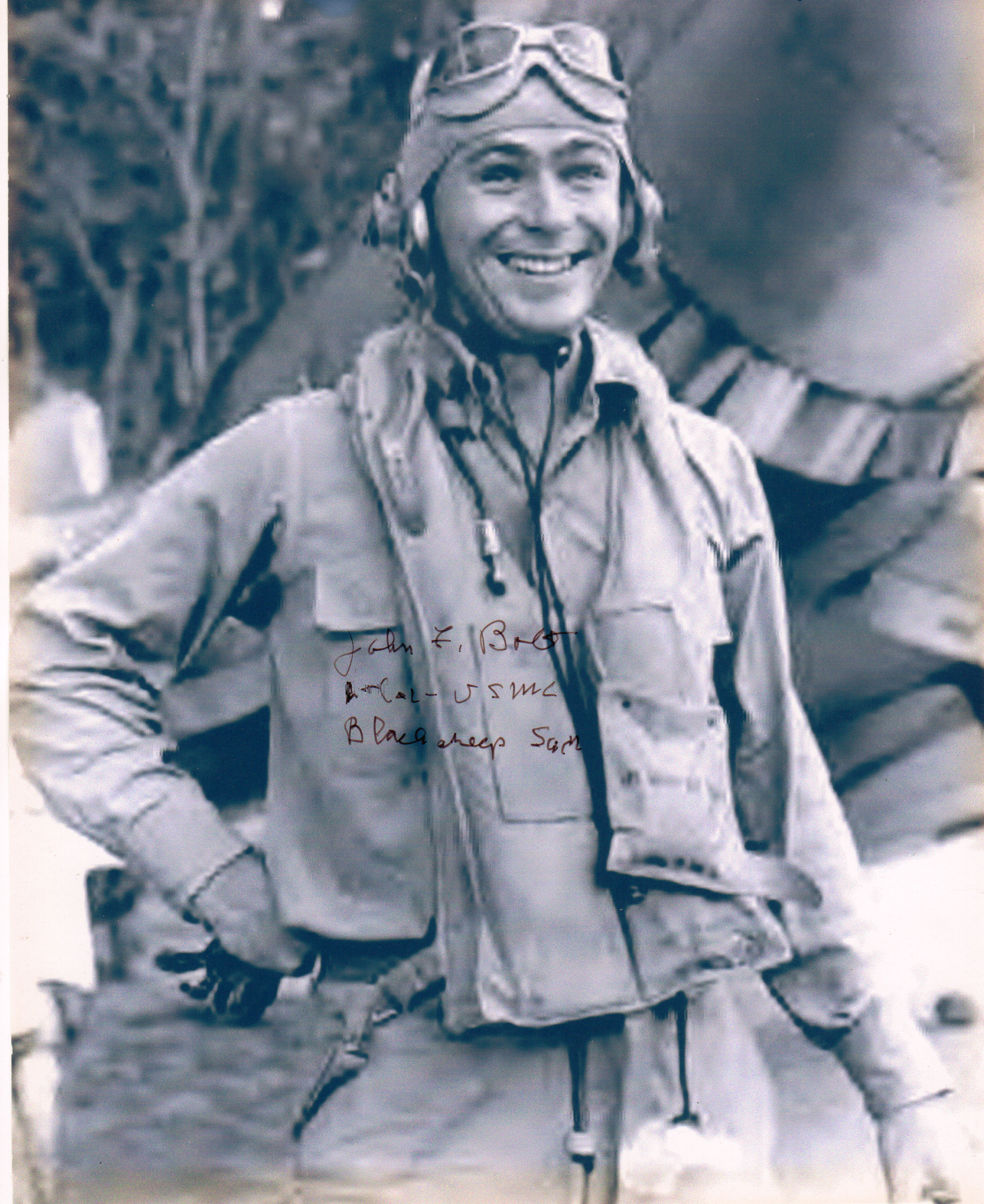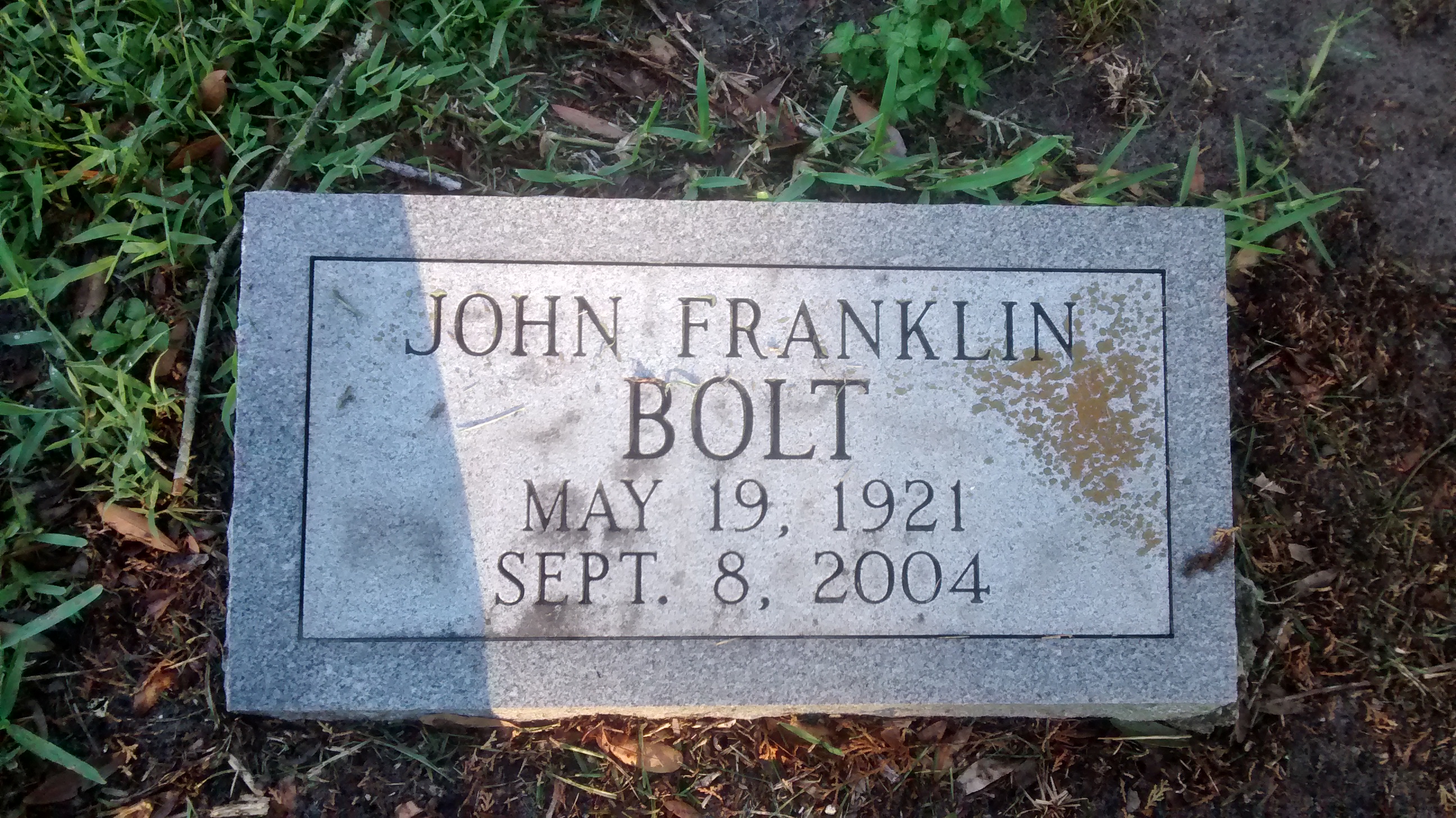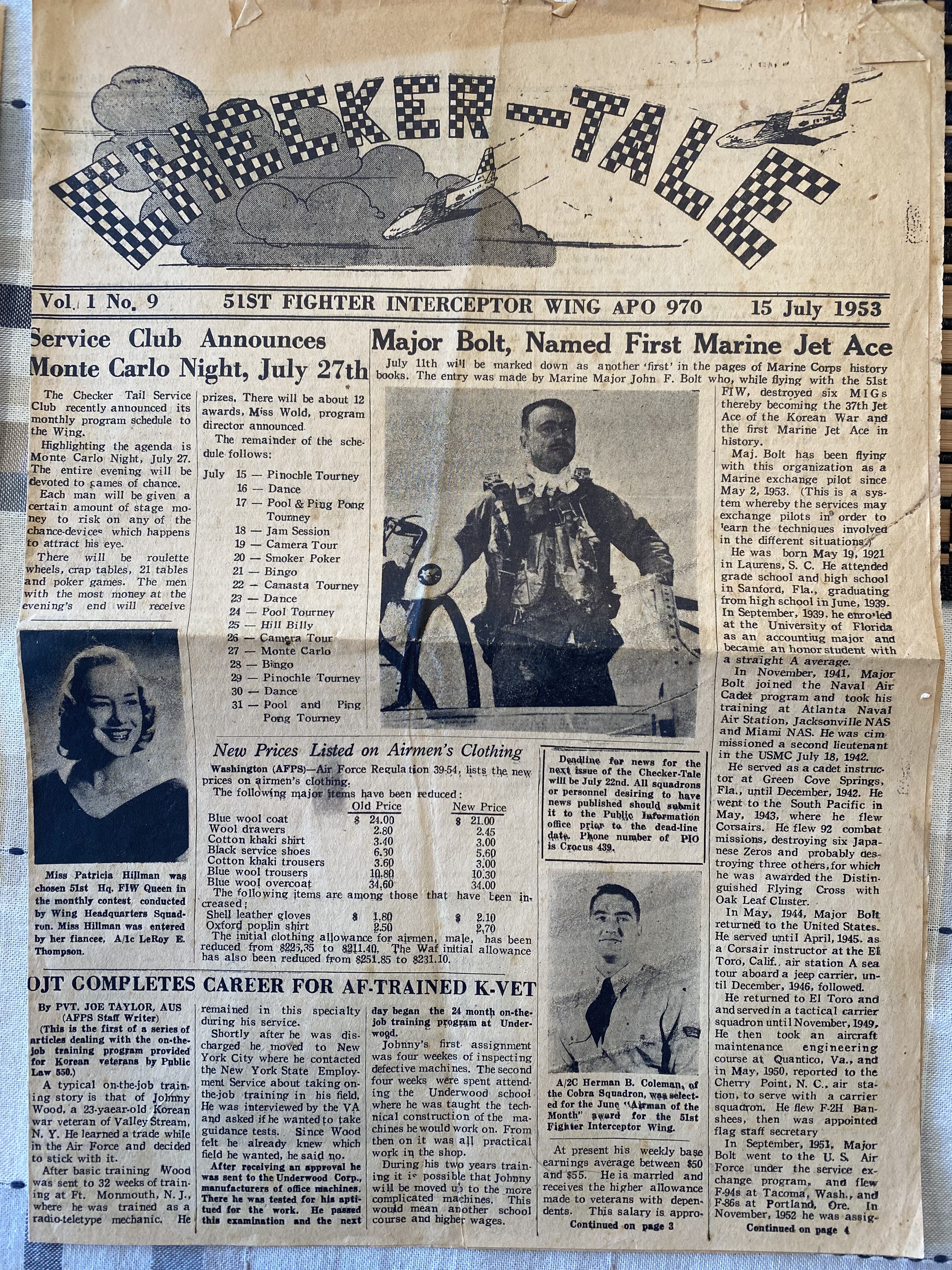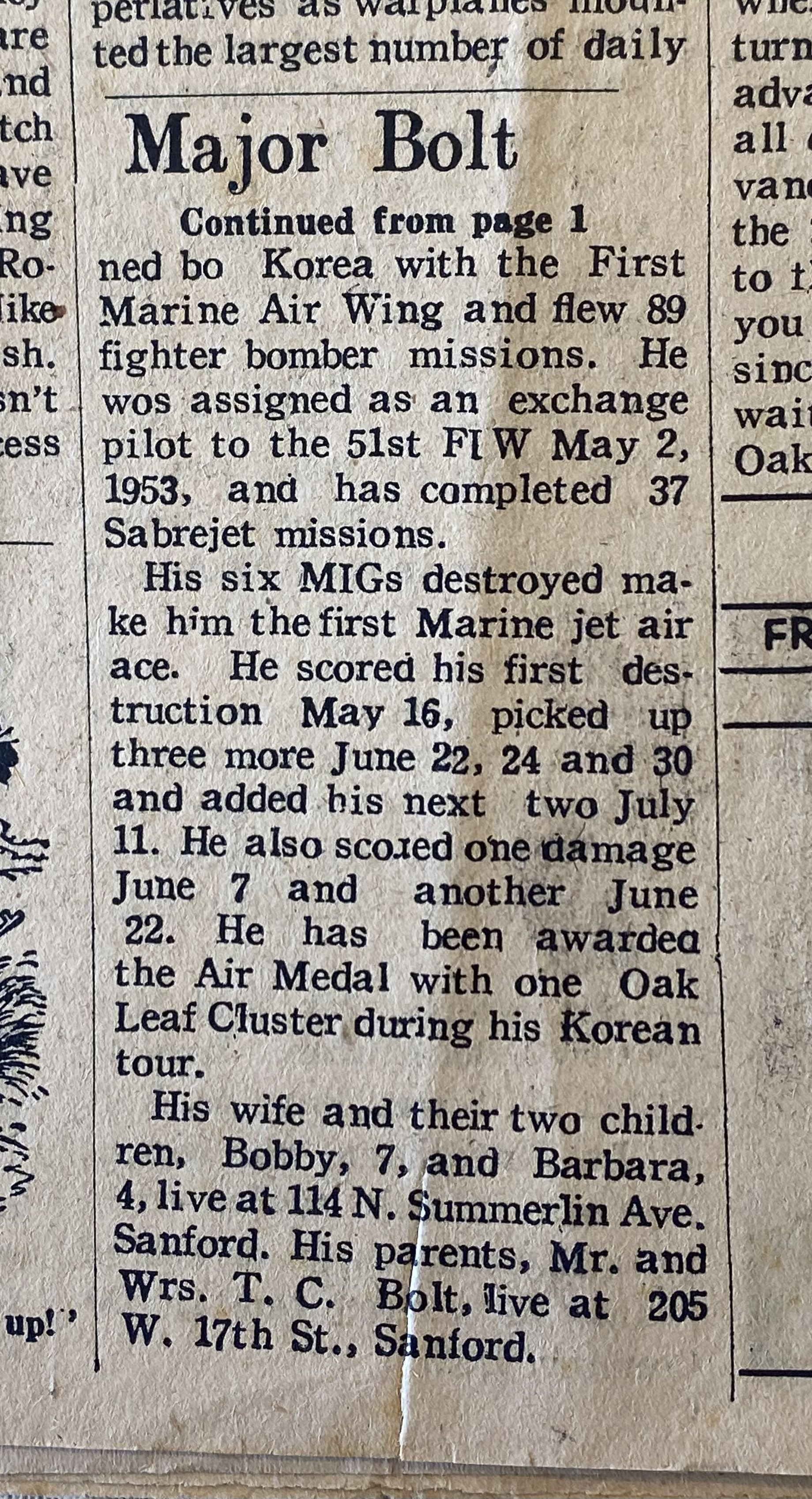Navy Cross Citation
The President of the United States of America takes pleasure in presenting the Navy Cross to Major John Franklin Bolt, Jr. (MCSN: 0-13522), United States Marine Corps, for extraordinary heroism in connection with military operations against an armed enemy of the United Nations while attached to the First Marine Aircraft Wing and serving as Pilot of a Plane in the THIRTY-NINTH Fighter-Interceptor Squadron, Fifth Air Force, in action against enemy aggressor forces in the Republic of Korea on 11 July 1953. Sighting four hostile jet interceptors immediately after the second section of his four-plane flight was forced to retire from the area because of a low fuel supply during a reconnaissance mission deep in enemy territory, Major Bolt quickly maneuvered his aircraft and that of his wingman into attack position and deliberately engaged the numerically superior enemy in a head-on firing run, destroying one of the hostile planes with his initial burst of fire. Although his fuel supply was dangerously low, he initiated repeated attacks on the remaining enemy aircraft and severely damaging the engine section of the lead interceptor, resolutely pressed his attack against the crippled plane until the enemy pilot was forced to bail out. By his exceptional courage and superb airmanship in destroying the two aircraft, Major Bolt raised his total of enemy jet planes destroyed during the Korean conflict to six, thereby becoming the first jet ace in the history of Marine Corps aviation. His inspiring leadership and great personal valor reflect the highest credit upon himself and was in keeping with the highest traditions of the United States Naval Service.
Navy Cross Citation
The President of the United States of America takes pleasure in presenting the Navy Cross to Major John Franklin Bolt, Jr. (MCSN: 0-13522), United States Marine Corps, for extraordinary heroism in connection with military operations against an armed enemy of the United Nations while attached to the First Marine Aircraft Wing and serving as Pilot of a Plane in the THIRTY-NINTH Fighter-Interceptor Squadron, Fifth Air Force, in action against enemy aggressor forces in the Republic of Korea on 11 July 1953. Sighting four hostile jet interceptors immediately after the second section of his four-plane flight was forced to retire from the area because of a low fuel supply during a reconnaissance mission deep in enemy territory, Major Bolt quickly maneuvered his aircraft and that of his wingman into attack position and deliberately engaged the numerically superior enemy in a head-on firing run, destroying one of the hostile planes with his initial burst of fire. Although his fuel supply was dangerously low, he initiated repeated attacks on the remaining enemy aircraft and severely damaging the engine section of the lead interceptor, resolutely pressed his attack against the crippled plane until the enemy pilot was forced to bail out. By his exceptional courage and superb airmanship in destroying the two aircraft, Major Bolt raised his total of enemy jet planes destroyed during the Korean conflict to six, thereby becoming the first jet ace in the history of Marine Corps aviation. His inspiring leadership and great personal valor reflect the highest credit upon himself and was in keeping with the highest traditions of the United States Naval Service.
Bio by: John "J-Cat" Griffith
